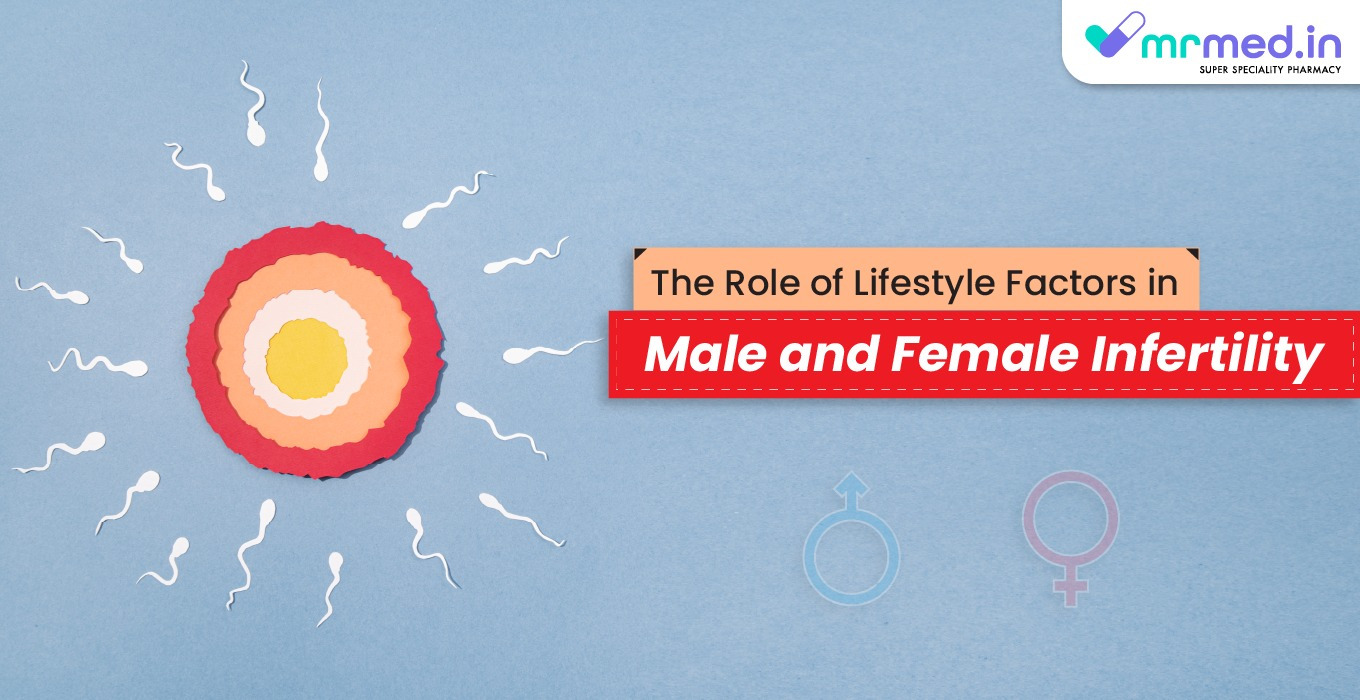Introduction
A difficult problem affecting millions of couples globally is infertility. Infertility has many reasons, but in recent years, lifestyle issues have drawn a lot of attention. Lifestyle decisions that could lead to fertility issues can have an effect on both men and women. The impact of lifestyle factors on male and female infertility will be examined in this article, along with the potential benefits of various lifestyle changes.
Lifestyle factors can significantly influence male and female infertility. For males, habits like smoking, excessive alcohol consumption, drug use, obesity, and heat exposure can harm sperm production, quality, and motility. Similarly, in females, smoking, excessive alcohol intake, drug use, weight-related issues, stress, and exposure to environmental toxins can affect fertility by disrupting hormonal balance, impairing ovulation, and damaging reproductive organs.
Optimizing fertility through lifestyle choices
1. Impact of Diet and Nutrition
Proper nutrition plays a vital role in shaping the reproductive health of both men and women. Essential nutrients that support reproductive function can be obtained from a balanced diet full of fruits, vegetables, whole grains, lean proteins, and healthy fats. Contrarily, a bad diet high in processed foods, trans fats, sugar, and caffeine can harm fertility. It's crucial for women to maintain a healthy weight since being underweight or overweight might mess with their hormones and prevent them from ovulating. Men's sperm quality, quantity, and motility may all decline as a result of poor nutrition. The adoption of a balanced, fertility-friendly diet can help to improve reproductive health.
2. Effects of Physical Activity
While regular exercise is good for overall health, excessive or intense physical activity might harm fertility. Excessive activity in women might interfere with the menstrual cycle and cause irregular ovulation or anovulation. Intense exercise in men can raise scrotal temperature and have an impact on sperm production. For best reproductive results, a balance between moderate exercise and rest is essential.
3. Impact of Substance Abuse
Abuse of drugs, including smoking, drinking, and using illegal substances, harms both men and women's fertility. Smoking can harm reproductive organs and reduce the quality of sperm and eggs. Alcohol use can mess with hormone levels, which has a bad effect on ovulation and sperm production. Illegal substances can alter the hormonal balance, sabotage menstrual cycles, and lower sperm quality. Fertility prospects can be considerably increased by giving up smoking, consuming less alcohol, and abstaining from illicit substances.
4. Psychological and Emotional Well-being
The fertility process can be significantly impacted by stress, anxiety, and sadness. The body's reaction to stress might alter the hormonal balance and obstruct reproductive functions. Stress can impact a woman's ovulation and fertilised egg implantation. Stress can result in a decline in sperm quantity and quality in men. Individuals and couples struggling with infertility must seek emotional support, use stress-reduction strategies like meditation or counselling, and maintain a healthy work-life balance.
Exploring the Role of Medications in Infertility Treatment
Medications play a crucial role in addressing infertility, targeting specific underlying causes in both men and women. To promote ovulation in women, commonly prescribed medications include letrozole and clomiphene citrate. In cases of more severe infertility, hormone therapy is another approach that can help regulate hormone levels in both genders. Folisurge 1200IU Injection containing Follitropin Alfa may be used to stimulate the ovaries. These medications are beneficial for both men and women. It is essential to consult a fertility specialist to determine the most suitable medication-based treatment strategy based on the individual's unique circumstances.
Conclusion
Lifestyle variables greatly impact male and female fertility. People may be able to increase their chances of getting pregnant by adopting a nutritious diet, engaging in moderate exercise, abstaining from drugs and alcohol, and placing a priority on psychological well-being. It's crucial to keep in mind that infertility is a complicated problem, and while making lifestyle changes might be helpful, getting competent medical advice and assistance is necessary for the best course of treatment.




